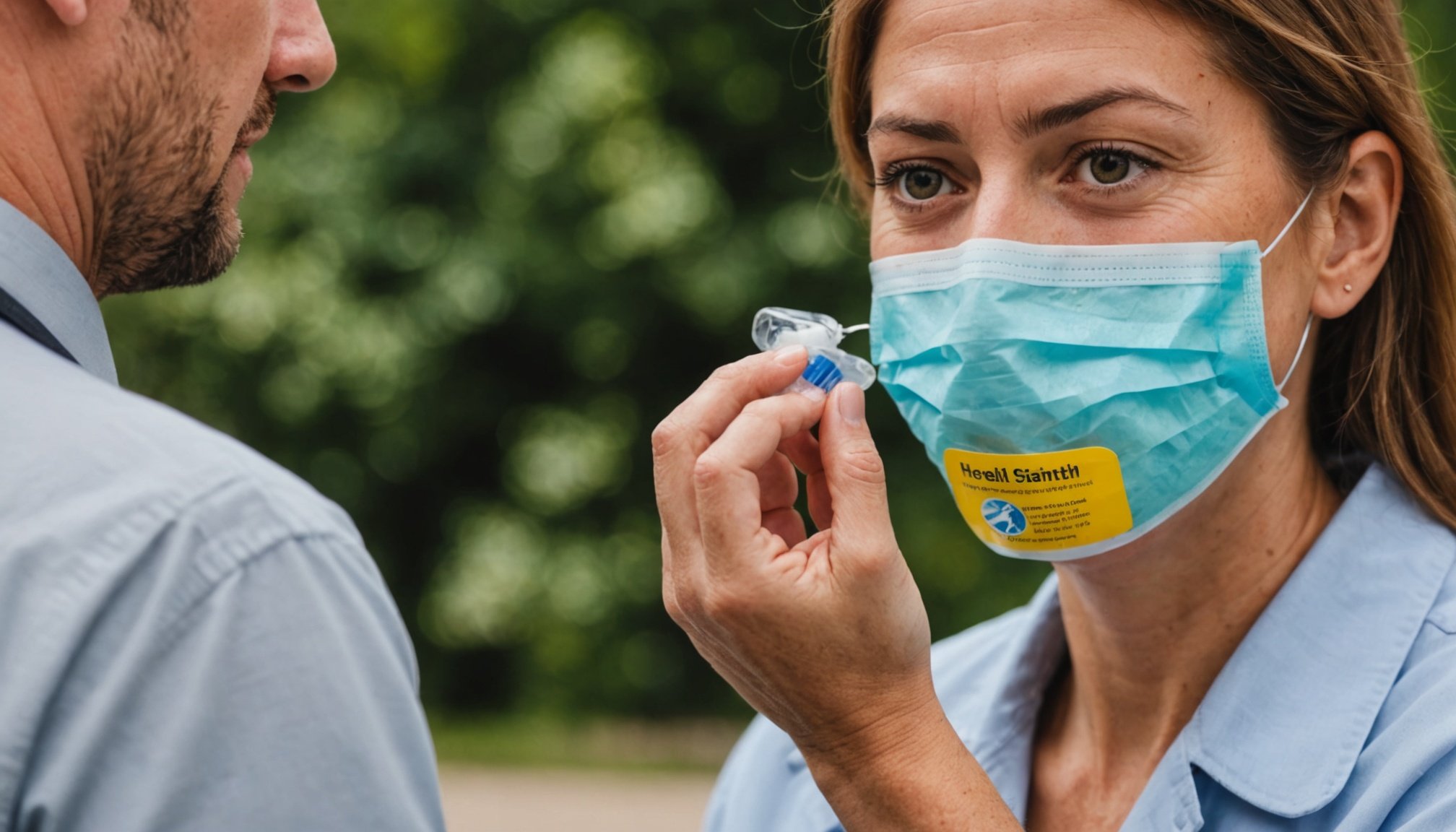Understanding the Dangers: How Excessive Hand Sanitizer Use Could Impact Your Health in the UK
In the wake of the COVID-19 pandemic, the use of hand sanitizers has become an integral part of our daily hygiene routines. While these products are undoubtedly effective in reducing the spread of infectious diseases, there are several potential health risks associated with their excessive use. This article delves into the details of these risks, providing a comprehensive overview of the dangers and offering practical advice on how to use hand sanitizers safely.
The Rise of Hand Sanitizers in the UK
Hand sanitizers have become ubiquitous in the UK, found in every corner of public life, from schools and hospitals to supermarkets and public transport. Their popularity is largely due to their convenience and efficacy in killing a wide range of microorganisms when soap and water are not available.
Also read : How can a gratitude practice support your mental health and weight management?
| Setting | Frequency of Use |
|
|-----------------|
| Schools | High |
| Hospitals | High |
| Supermarkets | Moderate |
| Public Transport | Moderate |
| Workplaces | Moderate |
However, this widespread use has also raised concerns among health experts and scholars about the potential long-term effects on health.
Skin Health Implications
One of the most immediate and noticeable effects of excessive hand sanitizer use is on skin health. The alcohol in hand sanitizers, typically ethanol, isopropanol, or n-propanol, strips the skin of its natural oils, leading to dryness, irritation, and potentially even contact dermatitis.
In the same genre : Unlocking Wellness: The Health Benefits of UK-Grown Superfoods Revealed
Common Skin Issues
- Dryness and Irritation: Frequent use can lead to the stripping of the skin’s natural barrier, causing dryness and irritation.
- Contact Dermatitis: Some individuals may develop allergic reactions to the ingredients in hand sanitizers.
- Barrier Disruption: The alcohol can disrupt the skin’s barrier function, making it more susceptible to other irritants and infections.
For example, a study on healthcare workers found a high correlation between frequent hand sanitizer use and the development of hand eczema.
Systemic Exposure and Health Risks
Beyond skin health, there are concerns about the systemic exposure to the active ingredients in hand sanitizers. Emerging science suggests that repeated daily exposure to these ingredients could have broader health implications.
Key Concerns
- Alcohol Absorption: Although the amount of alcohol absorbed through the skin is generally considered low, frequent use could lead to cumulative effects.
- Triclosan and Other Antimicrobials: Alcohol-free hand sanitizers often contain triclosan, which has been linked to endocrine disruption and environmental contamination. The European Union has restricted its use in consumer products due to these concerns.
As noted by the FDA, there is a need for more scientific data on the safety of hand sanitizer ingredients, particularly regarding systemic exposure and long-term health effects.
Efficacy and Limitations
While hand sanitizers are effective against many types of microorganisms, they are not a substitute for proper hand washing with soap and water.
When Hand Washing is Preferred
- Bacterial Spores: Hand sanitizers are ineffective against bacterial spores such as Clostridioides difficile.
- Visible Contaminants: If hands are visibly soiled, hand washing with soap and water is necessary to remove dirt and other contaminants.
- Certain Viruses: Hand sanitizers may not be effective against non-enveloped viruses like norovirus, especially if the alcohol concentration is below 95%.
Safety Concerns and Misuse
The safety of hand sanitizers also depends on their proper use and storage.
Risks of Misuse
- Ingestion: Alcohol-based hand sanitizers can cause alcohol poisoning if ingested, particularly in children. There have been reported cases of children being hospitalized after mistakenly ingesting hand sanitizer.
- Flammability: Alcohol-based hand sanitizers can be flammable, posing a risk if not stored properly.
For instance, the American Association of Poison Control Centers reported nearly 12,000 cases of hand sanitizer ingestion in 2006 alone.
Environmental Impact
The widespread use of hand sanitizers also has environmental implications, particularly concerning the ingredients used.
Environmental Concerns
- Triclosan: This antimicrobial agent has been linked to environmental contamination and the disruption of aquatic ecosystems.
- Resource Use: The production of hand sanitizers involves the use of various resources, including water and energy, which can have broader environmental impacts.
As highlighted in a study, the extensive use of natural oils in some cosmetic products, including hand sanitizers, can lead to deforestation and soil contamination through the use of pesticides and fertilizers.
Practical Advice for Safe Use
Given the potential risks, it is crucial to use hand sanitizers judiciously and follow best practices.
Best Practices
- Use the Right Amount: Apply a palmful of hand sanitizer and rub your hands together until they are dry, ensuring all surfaces are covered.
- Choose the Right Product: Opt for alcohol-based hand sanitizers, which are generally safer and more effective than alcohol-free alternatives.
- Avoid Ingestion: Keep hand sanitizers out of reach of children and avoid ingestion at all costs.
- Monitor Skin Health: Be aware of any skin irritation and take steps to moisturize your hands regularly.
Hand sanitizers are a valuable tool in maintaining hand hygiene, especially in situations where soap and water are not available. However, their excessive use can have significant health and environmental implications. By understanding these risks and following best practices, individuals can ensure that they use hand sanitizers safely and effectively.
As a scholar might advise, “The key to safe hand sanitizer use is balance and awareness. While these products are essential in preventing the spread of diseases, it is crucial to consider their potential long-term effects on health and the environment.”
In the UK, as in many other countries, promoting good hand hygiene practices that include both hand washing with soap and water and the judicious use of hand sanitizers is essential for public health. By being informed and taking the necessary precautions, we can maximize the benefits of hand sanitizers while minimizing their risks.











